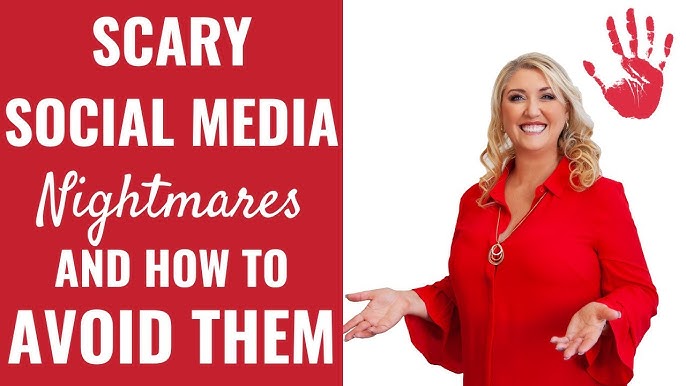Online video platforms have transformed the way we share and consume content. Websites like YouTube, TikTok, and Instagram make it easy to showcase creativity, talent, and moments from our lives. However, this ease of access comes with risks, especially when individuals use these platforms to document illegal activities. From underage drinking to vandalism, the repercussions of posting such content can be severe, impacting both personal and professional aspects of life. Let’s explore the dangers of posting illegal activities online and the ripple effects they create.
The Allure of Online Video Sharing
Why People Share Videos Online
Video sharing has become a cultural phenomenon. People post for entertainment, validation, or simply to connect with others. Social media trends often encourage risky behavior, leading individuals—especially teenagers and young adults—to record themselves engaging in illegal activities like drug use or harassment for likes and shares.
Trends in Documenting Illegal Activities
Many users are tempted to show their “edgy” or rebellious side. Documenting activities such as vandalism or fights might seem like harmless fun, but these videos can quickly spiral out of control, leading to legal consequences and public backlash.
The Legal Consequences of Sharing Illegal Content
Understanding Online Crime
When you post a video of an illegal activity, it doesn’t just disappear into the digital void. Law enforcement agencies monitor online platforms, and your video becomes digital evidence. For example, a post featuring underage drinking or drug use can open the door for investigations into your behavior.
How Digital Evidence Impacts Law Enforcement
Even if you think you’ve deleted a video, it can be saved, reshared, and used as proof of your actions. Authorities may not actively scour the internet, but they can stumble upon your content during investigations. Once discovered, it may lead to charges or increased surveillance of your activities.
The Digital Footprint: A Permanent Record
How Online Videos Are Stored and Shared
Your digital footprint is more permanent than you think. Videos uploaded to social media or video-sharing platforms often remain in servers, even after deletion. Additionally, others can download, record, or screenshot your content, keeping it alive on the internet.
Redistribution of Content Beyond Control
The moment a video is shared, it’s out of your hands. Someone could reshare your content, post it on other platforms, or even use it for malicious purposes. A single mistake can haunt you for years.
The Impact on Personal and Professional Life
Effect on Future Employment Opportunities
Employers increasingly review candidates’ online profiles. A video showcasing illegal activity—whether it’s a reckless stunt or a party involving underage drinking—could cost you a job. It paints a picture of irresponsibility, even if it was a one-time mistake.
Academic Repercussions for Students
If you’re a student, sharing such videos can lead to suspensions, expulsions, or loss of scholarships. Schools take violations of conduct policies seriously, especially if the content involves bullying, threats, or violence.
Impact on Extracurricular Activities
Extracurriculars like sports teams and clubs often have strict codes of conduct. Posting inappropriate content could result in being banned from these activities, affecting both your reputation and future opportunities.
The Social and Ethical Implications
The Rise of Cyberbullying and Harassment
Videos that mock, bully, or harass others contribute to cyberbullying, which can cause emotional harm to victims and lead to legal ramifications for the perpetrators. Cybercrime and social media are closely linked, and what seems like a joke to one person can be a devastating attack to another.
Defamation and Privacy Concerns
Sharing false or sensitive information can lead to defamation lawsuits. Furthermore, violating someone’s privacy by posting videos without their consent can result in severe legal and social consequences.
Protecting Yourself from Online Legal Trouble
Think Before You Post: A Safety Checklist
Before sharing a video, ask yourself these questions:
- Is this content safe and appropriate?
- Could it harm someone emotionally, physically, or legally?
- Does it violate platform guidelines or laws?
If the answer to any of these questions is yes, it’s better not to post.
Understanding Privacy Settings
Every social media platform has privacy and security settings. Use them to limit who can view your content. While this doesn’t guarantee absolute safety, it does add a layer of protection against unauthorized access.
What to Do If You’ve Shared Something Risky
If you’ve posted something you regret, delete it immediately. Report unauthorized reposts to the platform and consult a legal expert if necessary. Acting quickly can minimize damage, but prevention is always better than cure.
Conclusion: The Long-Term Impact of Irresponsible Sharing
The dark side of online video sharing is real. Documenting and posting illegal activities might seem harmless or even funny in the moment, but the consequences can be life-altering. From legal ramifications to damage to your digital footprint, a single video can lead to a cascade of problems. Stay cautious, think before you post, and remember that what goes online stays online.
FAQs About Sharing Online Videos
1. Can authorities really track me through my videos?
Yes, your videos contain metadata and visual evidence that can help authorities identify you.
2. What should I do if someone shares a video of me without consent?
Report the video to the platform and consult a legal expert for guidance on removing the content.
3. How can I ensure my videos are safe to share?
Avoid posting anything that’s illegal, harmful, or could hurt someone’s reputation.
4. Can deleted videos still be used against me?
Yes, others may have saved or reshared them before deletion, making them accessible for years.
5. What are the best practices for online safety?
Be mindful of what you post, adjust your privacy settings, and regularly review your digital presence.


